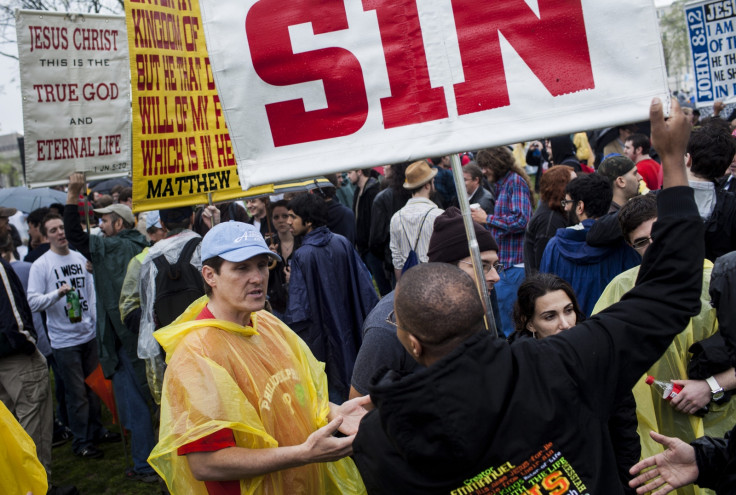Religious Freedom Day 2015: How are atheists received in America?

National Religious Freedom Day, observed annually across America on 16 January, commemorates the anniversary of Thomas Jefferson's landmark Virginia Statute for Religious Freedom in 1786.
A majority of Americans report that religion plays a "very important" role in their lives, with around 73% identifying as Christian.
Yet in a country increasingly portrayed as a hotbed of religion, agnostics and atheists are part of one of the fastest-growing demographics in the United States: the non-believers.
The numbers of are not exact, but one recent Pew poll found that more than a third of Americans aged between 18 and 29 now have "no religion affiliation", compared with less than 10% of their grandparents' generation.
But how are the "nones" – as they are called by the Pew Forum on Religion and Public Life – received in America?
A 2014 survey by the Pew Research Centre found that, while 10% would be unhappy if a family member married someone of a different political persuasion, and 30% would be unhappy if a family member married a gun owner, half of the respondents said they would be unhappy if a family member married an atheist.
Stigma against atheists in the United States is a problem rooted in social and political context, with a few American atheists comparing their situation to the discrimination faced by the lesbian, gay, bisexual, transgender and queer communities.
"Americans still feel it is acceptable to discriminate against atheists in ways considered beyond the pale for other groups," Fred Edwords, of the American Humanist Association, said.
According to secularists, however, the recent shift in attitudes towards gay marriage is evidence of how quickly public attitudes can change.
Today, over 55% of Americans support gay marriage – compared to 30% a decade ago. More and more states are legalising same-sex marriage, with South Dakota's ban on gay marriage the most recent to be deemed unconstitutional.
Other social trends have highlighted signs that the religious grasp on American society has loosened. There are higher divorce rates and less are attending weekly church services. While previous studies have continually shown that 40% of American adults attend church every week, other research has found the true number to be as little as half of that figure.
Yet still, limitations remain. There are not many open atheists in Congress or in state government, and atheists are not held in high esteem by potential voters. Non-believers are questioned over their dedication to a "Christian nation" - although the US Constitution is a wholly secular document.
It is largely considered to be "political suicide" to come out as atheist, as quoted by the San Francisco Chronicle when California Representative Pete Stark revealed he did not believe in a superior being in 2007.
Seven state constitutions include religious tests that effectively prevent atheists from holding public office, and, in some cases, being a juror or a witness. However, these have not been enforced since the early twentieth century.
Although the laws are undermined by the "No Religious Test Clause" of the US Constitution, they are still on the books in Arkansas, Maryland, Mississippi, North Carolina, South Carolina, Tennessee and Texas.
© Copyright IBTimes 2025. All rights reserved.




















